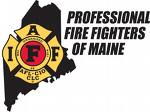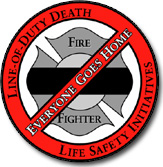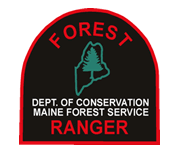Frequently Asked Questions
9-1-1 BASICS When you should call: · In an emergency · When you need help · When you need the police, fire department or an ambulance
When you should NOT call: · As a game, prank or joke · To practice · For animals unless it is a pet through the ice or in another life threatening situation
What to say when the 9-1-1 dispatcher answers: · Stay calm, speak clear and slowly · Explain what is wrong and what type of an emergency it is. · Explain what type of help you need – fire, police, or ambulance. · Explain where help is needed – the location of the emergency. · Give your name and address loudly and clearly. · Answer all questions that are asked of you, don't become frustrated with the operator (This information is needed so they can dispatch the correct and appropriate resources for your emergency.)
What NOT to do when you call 9-1-1: · Do not nod your head. Instead, answer “yes” or “no” aloud. · Do not hang up until the dispatcher says it is OK to do so.
DO's and DON’T's
Listed below are some DO's and DO NOT's to follow when dialing 9-1-1: · Never say “nine eleven” since there is no eleven on the telephone keypad. Always say 9-1-1. · Always call 9-1-1 from a safe place. If there is a fire in the house, get out first, then call. · If there is an intruder in the house, hide or get out to call 9-1-1 from a safe place. If you are unable to dial 9-1-1 from a safe area leave the phone on so the dispatcher can listen to the emergency even if you are not directly speaking to them. · Know your address – Have it posted near the telephone. Post your address on both sides of the mailbox as different apparatuses will approach your home from different sides depending on their location and where your house is in their district. · Rural residents should post directions to their house along with being able to describe your homes appearance. An example would be, “I am in a two-story, brown house with a green front door. I have left the front lights on..”
What is the city's ISO rating for fire protection? Most insurance carriers use what is know as ISO, Insurance Service Organization, to determine the quality of fire protection available and therefore establish insurance rates. The City of Auburn has a Class 3 ISO fire protection class rating for properties within the hydrant district and a Class 9 ISO fire protection class rating for properties outside of the hydrant district.
Why do I get an ambulance and a fire truck at my house when I call 911 with a medical emergency? The City provides what is known as a tiered EMS response system. Each fire department vehicle has at least two EMT and/or Paramedic riding on it. Since time is of the essence in a medical emergency, we send the closest truck according to the location of the call and available apparatus. This results in an average response time of around 4 minutes in the City of Auburn. Depending on your location of the emergency, road conditions and resources available all are a contributing factor in the response time. The fire department currently does not provide a transporting service, so the ambulance provides this service. The fire department’s goal is to start patient care and mitigate the emergency in an efficient, effective, and immediate manner.
What are EMT’s? EMT is an abbreviation for Emergency Medical Technician. EMT’s can provide different skills and services depending on their Emergency Medical Service (EMS) License. All EMT’s start at the Basic level, which is required by Maine State EMS. This license level requires both classroom and hands-on training of 120 hours. After the person has completed the end state test, they are licensed. The next license level is Intermediate which is roughly an additional year-long program requiring more time, skills and knowledge. The next license level is a Paramedic, which is a two-year college degree program that provides the most advanced life saving support including administrating medicines, surgical procedures and monitoring cardio rhythms. The Auburn Fire Department has 25 Basics, 18 Intermediates, and 12 Paramedics out of 60 uniformed personnel. These licenses expire so the AFD is constantly training with equipment and practicing their skills to provide the citizens with the highest quality of care.
Why are there so many firefighters on a single truck? The Auburn Fire Department responds to all emergency calls within the city with at least three firefighter/EMT’s on a single truck. Auburn continues to provide this level of fire suppression because of the amount of manpower, time, effort and proficiency it takes to deploy a line and put water on the fire. The National Fire Protection Association has put out a study, NFPA 1710, that explains about staffing apparatus. The study shows that as the staffing levels drop, the time and effort to extinguish a fire is greater. The more time it takes to get water on the fire, the larger the fire grows. The saying used in the fire service is, “For every 30 seconds a fire goes unchecked by water it doubles in size and by degree”. Today’s fires are burning hotter, more intense and faster than fires in previous decades. Having the fire loads in structures be made out of plastics instead of natural material and buildings being constructed of light weight material has required more manpower at these fires because of the size of the fires and how large modern homes have become. For that reason, time is crucial not just for fires but for any emergency. Having a three-member engine company allows for the line to be deployed and operated with an officer and firefighter along with the engineer staying with the truck to operate it. A three or four member truck allows the crews to do more fire fighting operations including search and rescue, ventilation, overhaul, and salvage.
Why do we have so many fire stations in Auburn? The three stations are strategically positioned throughout Auburn to provide a quick, proficient response time to Auburn citizens. The goal for the fire department is to answer 90% of all emergencies in 4 minutes. This is a standard set by NFPA and is a goal that Auburn takes seriously. This standard is another reason why the stations are staffed 24 hours a day, 365 days a year. In addition, the apparatus is designated to its district based on types of structures and risks in the district. As the population spreads out to the rural areas in Auburn, additional staffing and stations need to be built to provide those citizens with fire and EMS protection.
What do the firefighters of Auburn do? The first priority of the Auburn Fire Department is to provide emergency responses to the citizens and local areas of Auburn. The AFD tries to provide as many services as the community needs in a safe, practical manner. The AFD provides a variety of services that requires countless hours of training and studying in order to be effective at these tasks. AFD not only responds to fires and EMS calls but also an assortment of other emergencies that require specific training and equipment. The AFD provides high/low angle rope rescues, water/ice/swift-water rescue, vehicle/industrial extrications, Haz-Mat control and contaminate scenes, salvage operations, inspections of buildings and special permits. The second priority for the fire department is training. The firefighters are required by law to stay up-to-date with specific trainings. Training includes EMS, fire, and annual training required by the Maine Department of Labor Standards (BLS). Lastly, but also necessary, is station and apparatus maintenance. The firefighters are responsible for maintaining their stations. They do common household cleaning along with painting and other specific maintenance tasks that the station may need. In addition, the firefighters take great pride in their trucks and tools so they are regularly maintaining them. This includes waxing the trucks, cleaning the tools, and making sure everything is in working order on a daily basis so that when the call comes in they are prepared for it.
Can we have Fire or EMS coverage at an event? Yes. It requires a two-week notice for us to try to find personnel to cover the event, as they will be off-duty personnel. The cost is $45.00/HR per person.
Could I get a copy of an incident report? Is there any charge? Yes. Incident Reports can be obtained at the fire administrative offices at Central Station; 550 Minot Ave, Auburn, Maine for a fee of $10. Please call ahead at (207) 784-5433 ext. 21 to request a copy. It would be helpful to have the date and location of the incident.
Do you inspect woodstoves and chimneys? Is there a charge? The fire department does conduct wood stove inspections for no charge. This inspection is to make recommendations to the home owner. Keep in mind, it is not for insurance purposes. To schedule an inspection please contact Becky Hennessey, Fire Planner, at 207.784.5433 ext. 22 or bhennessey@auburnmaine.gov. For installation guidelines, refer to our wood stove installation checklist. The fire department does not conduct pellet stove inspections. For installation guidelines, follow the manufacturer's recommended installation instructions.
Could I have a fire safety inspection done? Is there any charge? Yes, you can schedule a fire inspection by calling Becky Hennessey, Fire Department Planner, at 207.784.5433 ext. 22. There is no charge for a fire inspection. Generally we inspect tenament buildings, businesses, schools and industrial facilities. We typically check for general fire and life safety violations. Inspections are typically conducted in the basement, hallways, and common areas of the building.
When are carbon monoxide detectors required? For information on when carbon monoxide detectors are require, please refer to our carbon monoxide detector guidelines.
Do I need a Key box? How do I get one? Knox boxes are not required; however, the fire department strongly suggests that businesses and tenement buildings obtain one. For more information, please contact the Battalion Chief at 207.784.5433 ext 27.
Knox boxes can also be purchased directly from the Knox Box company at www.knoxbox.com. Once connected to their site, select Knox Box 3200 Series on the left and enter Auburn's zip code to view the various Knox boxes available.
What Permits are issued by the Fire Department? The fire department issues blasting permits, burning permits, firework permits, and oil burner permits. Information on how to obtain a permit and the fee involved is listed below: Companies can obtain blasting permits at Central Station for no charge. Companies must provide the fire department with a completed notification of blasting form, certificate of liability insurance and a State of Maine Permit to Use Explosives. Please contact Becky Hennessey at 207.784.5433 ext 22 for more information.
Burning permits can be obtained at any of our three stations for no charge. It is recommended that you call Central Station at 207.784.5433 ext. 27 after 9:00 a.m. on the day you wish to burn to verify that burning is allowed for that day. For information on what is permissible to burn with and without a permit, please refer to our open burning guidelines.
Companies can obtain firework permits at Central Station for no charge. Companies must provide the fire department with a completed notification of blasting for fireworks form, certificate of liability insurance and a State of Maine Permit for Outdoor Fireworks Display. Please contact Becky Hennessey at 207.784.5433 ext 22 for more information.
Oil burner permits can be obtained by a master licensed heating technician at Central Station for a fee of $30. Once a permit has been obtained and the oil burner has been installed, the fire department must conduct an inspection for final approval. Please contact the on-duty Battalion Chief at 207.784.5433 ext 27 to schedule an inspection.
How do I obtain an outside burning permit? Burning permits can be obtained at any of our three stations at no charge. It is recommended that you call Central Station at (207)784-5433 ext. 27 after nine a.m. on the day you wish to burn. You will then be advised as to whether or not burning is allowed for that day and will be given further information based on your specific request.
When do I need a burning permit and what are some of the guidelines for burning? You are required to obtain a burning permit any time you have a open fire burning. Burning is not allowed within 25 feet of a public way or within 50 feet of a building. You must have adequate help and equipment to control your fire, and it is illegal to leave a fire unattended at any time. However, you do NOT need a permit for the use of your grill or hibachi and to use your outdoor fireplace provided it is used only for warming or cooking. . Recreational fires shall not be located within 25 feet of a structure or combustible material. It is a good idea to call the fire department before you burn and let them know that you will be burning. This will prevent the response of the fire department to your house if they are called. Grills must not be used where there is a roof or floor above it and shall be spaced a minimum of 5 feet away from any and all combustibles. Combustibles include but not limited to the siding of a building, lawn furniture and anything else that could catch on fire. You CANNOT burn tires, rubber products, asphalt shingles, tar, paints or solvents sludge, rubbish or refuse, paper, cardboard, wooden boxes, leaves or grass.
Can I burn leaves in the City of Auburn?
Burning of leaves is NOT allowed in the City of Auburn.
Do we give tours to children? Yes. To schedule a tour contact the Battalion Chief at (207)784-5433 ext 27 to make an appointment.
What do I do if my child is setting fires? The Auburn Fire Department offers a Juvenile Firesetter Program. For more information, contact our Fire Prevention Officer, David O'Connell, at 207.784.5433 ext. 28 or doconnell@auburnmaine.gov.
How are fires classified? Fires are categorized into different classes. Class A fires involve ordinary combustibles or fibrous material, such as wood, paper, cloth, rubber and some plastics. Class B fires involve flammable or combustible liquids such as gasoline, kerosene, paint, paint thinners and propane. Class C fires involve energized electrical equipment, such as appliances, switches, panel boxes and power tools. Class D fires involve certain combustible metals, such as magnesium, titanium, potassium and sodium. These metals burn at high temperatures and give off sufficient oxygen to support combustion. They may react violently with water or other chemicals, and must be handled with care.
How do I select the proper fire extinguisher for my needs? Every type of extinguisher is designed to fight a certain class or classes of fire. All ratings are shown on the extinguisher faceplate. Some extinguishers are marked with multiple ratings such as AB, BC and ABC. These extinguishers are capable of putting out more than one class of fire. Select the most appropriate type of fire extinguisher for your needs based on the class of fire, which are listed below.
Class A fires involve ordinary combustibles or fibrous material, such as wood, paper, cloth, rubber and some plastics. Class B fires involve flammable or combustible liquids such as gasoline, kerosene, paint, paint thinners and propane. Class C fires involve energized electrical equipment, such as appliances, switches, panel boxes and power tools. Class D fires involve certain combustible metals, such as magnesium, titanium, potassium and sodium.
If you have further questions regarding your fire extinguisher needs, please refer to the yellow pages in the phone directory for a company that carries Underwriters Laboratory (UL) equipment.
Where can I go to have my fire extinguisher serviced or disposed of? Auburn Fire Department does not endorse any particular company to service or dispose of extinguishers or alarms. Please refer to the yellow pages in the phone directory for a company that carries Underwriters Laboratory (UL) equipment.
Page Last Updated: Sep 25, 2012 (08:34:14)
|
|












